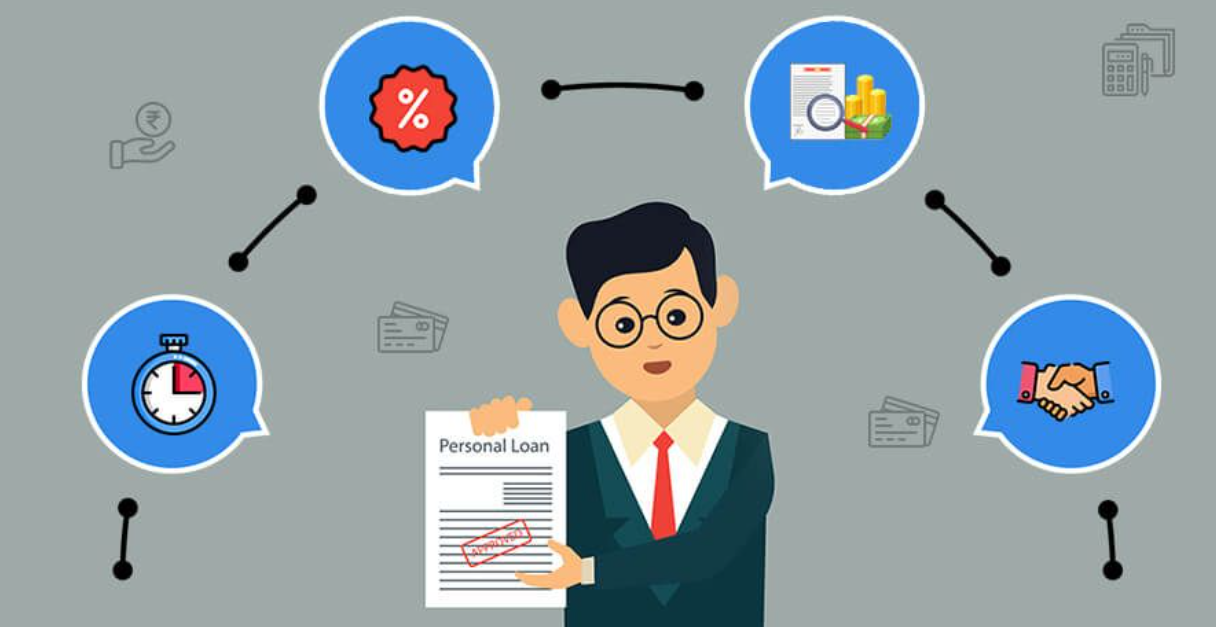In today's financial landscape, personal loans have become a common way to fund various expenses, from home renovations to unexpected medical bills. However, a question often arises: "How many personal loans can you have at once?" While there isn't a one-size-fits-all answer, we'll consider the factors and provide tips for managing multiple personal loans effectively.
Understanding Personal Loans
Before we dive into the specifics of managing multiple personal loans, let's start with a brief overview of what personal loans are. Personal loans are unsecured loans offered by banks, credit unions, and online lenders. They are typically used for personal expenses, such as debt consolidation, home improvement, or unexpected costs.
The Impact of Multiple Personal Loans
Now, let's address the primary concern: can you simultaneously have more than one personal loan? The short answer is yes, you can have multiple personal loans simultaneously. However, it's essential to understand the potential impact on your financial situation.
Credit Score
In addition to the potential temporary dip in your credit score due to multiple hard inquiries, it's crucial to understand the long-term implications. While the initial impact may be minor, maintaining multiple personal loans over time can influence your creditworthiness.
Late payments or defaults on any of these loans can significantly harm your credit score, making it harder to secure new credit or loans with favorable terms. Therefore, staying on top of your payments and ensuring they are made promptly is essential to preserve your creditworthiness.
Debt-to-Income Ratio
Your debt-to-income ratio (DTI) is critical to lenders' decision-making processes. While it considers all your debts, having multiple personal loans can significantly affect this ratio. A high DTI suggests a more substantial financial burden, making lenders cautious about extending additional credit.
To maintain a healthy DTI, consider paying down existing loans before taking on new ones. This approach can improve your chances of being approved for future credit needs.
Interest Rates
Higher interest rates are another consideration when managing multiple personal loans. Lenders may perceive borrowers with multiple outstanding loans as riskier, leading them to offer loans with higher interest rates. Over time, this can translate into more substantial interest costs.
To mitigate this, focus on paying off high-interest loans first and shop around for lenders offering competitive rates when considering new personal loans. Reducing interest expenses should be a priority to keep your finances manageable and sustainable.
Tips for Managing Multiple Personal Loans
While having multiple personal loans isn't inherently bad, managing them wisely is essential. Here are some tips to help you navigate this situation:

Create a Budget: Create a detailed budget outlining your income, expenses, and debt obligations. This will give you a clear picture of your financial situation and help you prioritize your loan payments.
Prioritize High-Interest Debt: If you have multiple personal loans, focus on paying off the highest interest rates first. This will save you money in the long run and reduce your overall debt burden.
Consider Debt Consolidation: You can explore debt consolidation options if you are overwhelmed by multiple personal loans. This entails acquiring a fresh loan with the purpose of settling your current debts, amalgamating them into one monthly payment. Debt consolidation has the potential to streamline your financial situation and potentially reduce your interest rate.
Avoid Taking on More Debt: While you can have multiple personal loans, avoiding accumulating more debt is crucial. Think twice before taking on additional loans; only do so if necessary.
Monitor Your Credit: Keep a close eye on your credit report to ensure no errors or inaccuracies. Regularly monitoring your credit can help you catch and address any issues arising from multiple personal loans.
Lender Policies and Requirements
The rules regarding how many personal loans you can have at once can vary among lenders. Here are some factors to consider:
Lender Policies
When it comes to lender policies, it's not just about the number of personal loans you can have but also the specific rules each lender may have in place. Some lenders may impose limits on the total amount of outstanding debt they are comfortable with for a borrower.
For instance, they might be okay with you having multiple small personal loans but cautious if you're seeking large loan amounts simultaneously. To avoid surprises, always inquire about a lender's policies upfront and read the fine print to understand their restrictions and expectations clearly.
Creditworthiness
Your creditworthiness is pivotal in whether lenders approve you for multiple personal loans. While having a high credit score and securing multiple loans is possible, your income and other financial factors are also considered. Lenders want to ensure that you can comfortably manage the debt load you're taking on.
Lenders may be more inclined to extend additional credit if your income and creditworthiness are solid. Still, it's essential to strike a balance between your borrowing capacity and your financial stability.
Loan Types
The type of personal loan you're applying for can significantly impact a lender's decision to approve multiple loans. Some lenders specialize in certain loan types and may be more willing to offer you a line of credit or a personal line of credit in addition to an installment loan.

Understanding the lender's loan product offerings can help you make a more informed choice about the types of loans to pursue. Additionally, exploring different loan options within a single lender's offerings may increase your chances of securing multiple loans without significantly affecting your creditworthiness or lender policies.
Conclusion
In summary, having multiple personal loans at once is possible, but it's essential to manage them wisely. Be mindful of the impact on your credit score, debt-to-income ratio, and interest costs. Create a budget, prioritize high-interest debt, and consider debt consolidation if necessary.
Always review lender policies and requirements and explore alternative financing options when appropriate. By taking a strategic approach, you can navigate the world of personal loans while maintaining your financial health.




